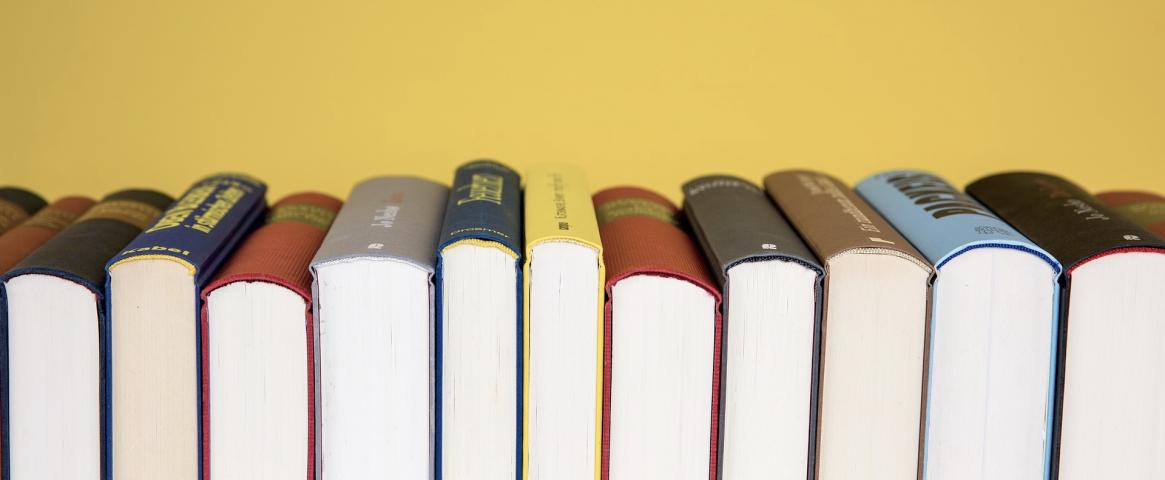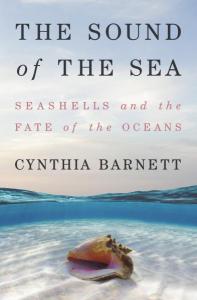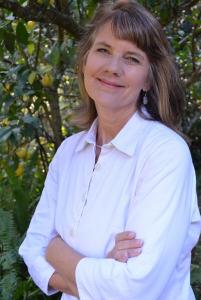
Cynthia Barnett—The Sound of the Sea: Seashells and the Fate of the Oceans
SEASHELLS AND THE FATE OF THE OCEANS
Cynthia Barnett
W.W. Norton, July 6, 2021, $27.95
ISBN-10: 0393651444, ISBN-13: 978-0393651447
Barnett reports:
The Sound of the Sea blends history and science to tell the story of seashells and the animals that build them, the marine mollusks.
I had published three books on freshwater, most recently Rain: A Natural and Cultural History, and liked the idea of completing the hydrologic cycle with a project on oceans. I started researching mollusks after the director of a seashell museum on Sanibel Island told me about a survey she’d conducted to learn how much visitors already knew about shells. Most respondents, many of them tourists and children visiting Florida, had no idea that a shell is made by a living animal. Many thought they were stones.
Seashells seemed like a good metaphor for the unseen, and for helping people understand what’s happening to the sea and its life. People have always “listened” to seashells. Shells of unfamiliar species like ammonites provided evidence of evolution and extinction when those concepts seemed far-fetched. Seashells on mountaintops told stories of shifting continents and rising and falling seas. Mollusks now bear the marks of ocean acidification—but also, in some cases, an extraordinary ability to adapt.
I structured the chapters roughly in the shape of a spiral shell, winding out from an axis in Sanibel and the wonderful American seashell story that hadn’t been told, including the “Cities of Shell” built by the indigenous Calusa before European settlement. The narrative winds out to other countries to underscore our connections to human livelihoods and marine life worldwide.For my previous books, crafting and pitching the proposals were the arduous parts, especially the months of steady rejection before each sold.
This time, writing the proposal, finding the right editor and publisher in Matt Weiland at W.W. Norton, and negotiating an advance to cover the travel the book deserved were easier because of the success of Rain.
My advice to aspiring authors is to believe in yourself and don’t let agents’ or editors’ rejections throw you off. Also, save those rejection letters. It’s particularly rich when someone who crushed your idea comes looking for a favor later.
Contact info:
- Cynthia Barnett: cynthiabarnett@gmail.com, https://www.cynthiabarnett.net/, @cynthiabarnett
- Book: https://wwnorton.com/books/9780393651447
- Publicist: Kyle Radler, 212-790-4295, kradler@wwnorton.com
- Agent: Elise Capron, 858-755-3115 x100, elise@dijkstraagency.com
NASW members: will your book be published soon? Promote it by submitting your report for Advance Copy.
Tell your fellow NASW members how you came up with the idea for your book, developed a proposal, found an agent and publisher, funded and conducted research, and put the book together. Include what you wish you had known before you began working on your book, or had done differently.
See https://www.nasw.org/advance-copy-submission-guidelines.
View Advance Copy archives at https://www.nasw.org/member-article/advance-copy.
Thinking of writing a book? If you are a NASW member, you may access a list of more than 200 books and online resources to help you craft your book proposal, find an agent and funding sources, negotiate your contract, learn about self-publishing, publicize and market your book, and more at https://www.nasw.org/article/write-book.
Send book info and questions about book publishing to Lynne Lamberg, NASW book editor, llamberg@nasw.org.
Follow @LynneLamberg on Twitter for news about science/medical books and writing.
Hero image by Hermann Traub from Pixabay.
Advance Copy
The path from idea to book may take myriad routes. The Advance Copy column, started in 2000 by NASW volunteer book editor Lynne Lamberg, features NASW authors telling the stories behind their books. Authors are asked to report how they got their idea, honed it into a proposal, found an agent and a publisher, funded and conducted their research, and organized their writing process. They also are asked to share what they wish they’d known when they started or would do differently next time, and what advice they can offer aspiring authors. Lamberg edits the authors’ answers to produce the Advance Copy reports.
NASW members: Will your book be published soon? Visit www.nasw.org/advance-copy-submission-guidelines for information on submitting your report.
Publication of NASW author reports in Advance Copy does not constitute NASW's endorsement of any publication or the ideas, values, or material contained within or espoused by authors or their books. We hope this column stimulates productive discussions on important topics now and in the future as both science and societies progress. We welcome your discussion in the comments section below.


